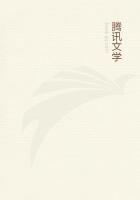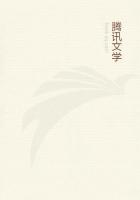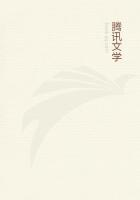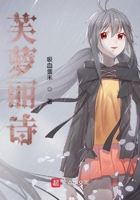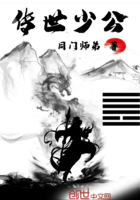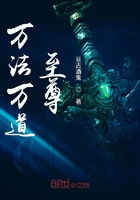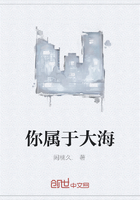And sing traro, brave boys, we will foller.
And when poor puss arise, Then away from us she flies;And we'll gives her, boys, we'll gives her, One thundering and loud holler!
CHO. With our hosses, &c.
And when poor puss is killed, We'll retires from the field;And we'll count boys, and we'll count On the same good ren to-morrer.
CHO. With our bosses and our hounds, &c.
Ballad: THE TROTTING HORSE.
[THE common copies of this old highwayman's song are very corrupt.
We are indebted for the following version, which contains several emendations, to Mr. W. H. Ainsworth. The song, which may probably be referred to the age of Charles II., is a spirited specimen of its class.]
I CAN sport as fine a trotting horse as any swell in town, To trot you fourteen miles an hour, I'll bet you fifty crown;He is such a one to bend his knees, and tuck his haunches in, And throw the dust in people's face, and think it not a sin.
For to ride away, trot away, Ri, fa lar, la, &c.
He has an eye like any hawk, a neck like any swan, A foot light as the stag's, the while his back is scarce a span;Kind Nature hath so formed him, he is everything that's good, -Aye! everything a man could wish, in bottom, bone, and blood.
For to ride away, &c.
If you drop therein, he'll nod his head, and boldly walk away, While others kick and bounce about, to him it's only play;There never was a finer horse e'er went on English ground, He is rising six years old, and is all over right and sound.
For to ride away, &c.
If any frisk or milling match should call me out of town, I can pass the blades with white cockades, their whiskers hanging down;With large jack-towels round their necks, they think they're first and fast, But, with their gapers open wide, they find that they are last.
Whilst I ride away, &c.
If threescore miles I am from home, I darkness never mind, My friend is gone, and I am left, with pipe and pot behind;Up comes some saucy kiddy, a scampsman on the hot, But ere he pulls the trigger I am off just like a shot.
For I ride away, &c.
If Fortune e'er should fickle be, and wish to have again That which she so freely gave, I'd give it without pain;I would part with it most freely, and without the least remorse, Only grant to me what God hath gave, my mistress and my horse!
That I may ride away, &c.
Ballad: THE SEEDS OF LOVE.
[THIS very curious old song is not only a favourite with our peasantry, but, in consequence of having been introduced into the modern dramatic entertainment of THE LOAN OF A LOVER, has obtained popularity in higher circles. Its sweetly plaintive tune will be found in POPULAR MUSIC. The words are quaint, but by no means wanting in beauty; they are, no doubt, corrupted, as we have derived them from common broadsides, the only form in which we have been able to meet with them. The author of the song was Mrs.
Fleetwood Habergham, of Habergham, in the county of Lancaster.
'Ruined by the extravagance, and disgraced by the vices of her husband, she soothed her sorrows,' says Dr. Whitaker, 'by some stanzas yet remembered among the old people of her neighbourhood.'
- HISTORY OF WHALLEY. Mrs. Habergham died in 1703, and was buried at Padiham.]
I SOWED the seeds of love, it was all in the spring, In April, May, and June, likewise, when small birds they do sing;My garden's well planted with flowers everywhere, Yet I had not the liberty to choose for myself the flower that Iloved so dear.
My gardener he stood by, I asked him to choose for me, He chose me the violet, the lily and pink, but those I refused all three;The violet I forsook, because it fades so soon, The lily and the pink I did o'erlook, and I vowed I'd stay till June.
In June there's a red rose-bud, and that's the flower for me!
But often have I plucked at the red rose-bud till I gained the willow-tree;The willow-tree will twist, and the willow-tree will twice, -O! I wish I was in the dear youth's arms that once had the heart of mine.
My gardener he stood by, he told me to take great care, For in the middle of a red rose-bud there grows a sharp thorn there;I told him I'd take no care till I did feel the smart, And often I plucked at the red rose-bud till I pierced it to the heart.
I'll make me a posy of hyssop, - no other I can touch, -That all the world may plainly see I love one flower too much;My garden is run wild! where shall I plant anew -For my bed, that once was covered with thyme, is all overrun with rue? Ballad: THE GARDEN-GATE.
[ONE of our most pleasing rural ditties. The air is very beautiful. We first heard it sung in Malhamdale, Yorkshire, by Willy Bolton, an old Dales'-minstrel, who accompanied himself on the union-pipes. ]
THE day was spent, the moon shone bright, The village clock struck eight;Young Mary hastened, with delight, Unto the garden-gate:
But what was there that made her sad? -
The gate was there, but not the lad, Which made poor Mary say and sigh, 'Was ever poor girl so sad as I?'
She traced the garden here and there, The village clock struck nine;Which made poor Mary sigh, and say, 'You shan't, you shan't be mine!
You promised to meet at the gate at eight, You ne'er shall keep me, nor make me wait, For I'll let all such creatures see, They ne'er shall make a fool of me!'
She traced the garden here and there, The village clock struck ten;Young William caught her in his arms, No more to part again:
For he'd been to buy the ring that day, And O! he had been a long, long way; -Then, how could Mary cruel prove, To banish the lad she so dearly did love?
Up with the morning sun they rose, To church they went away, And all the village joyful were, Upon their wedding-day:
Now in a cot, by a river side, William and Mary both reside;And she blesses the night that she did wait For her absent swain, at the garden-gate.
Ballad: THE NEW-MOWN HAY.
[THIS song is a village-version of an incident which occurred in the Cecil family. The same English adventure has, strangely enough, been made the subject of one of the most romantic of Moore's IRISH MELODIES, viz., YOU REMEMBER HELEN, THE HAMLET'SPRIDE.]

